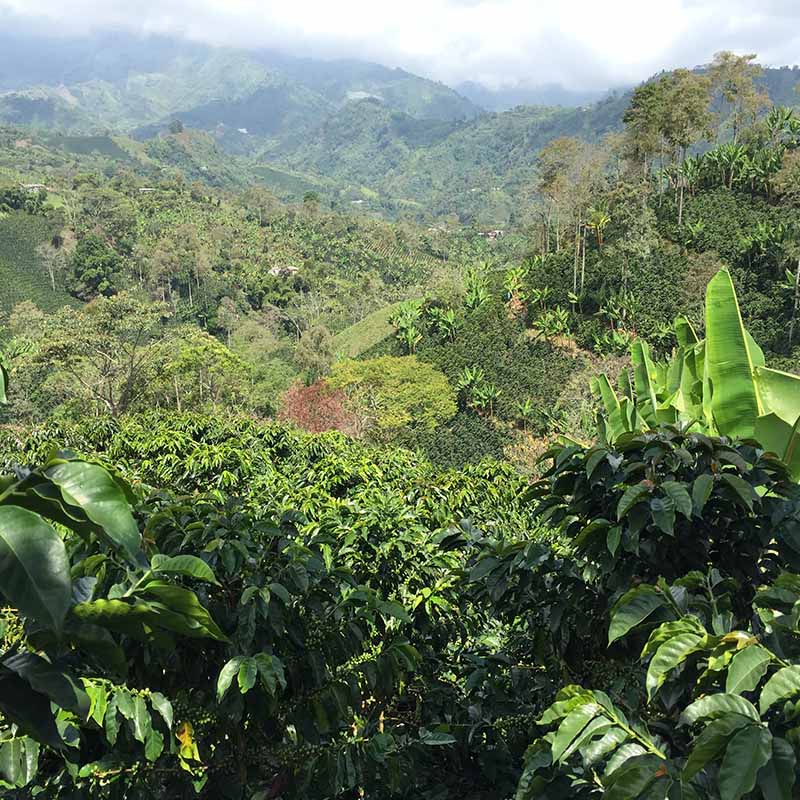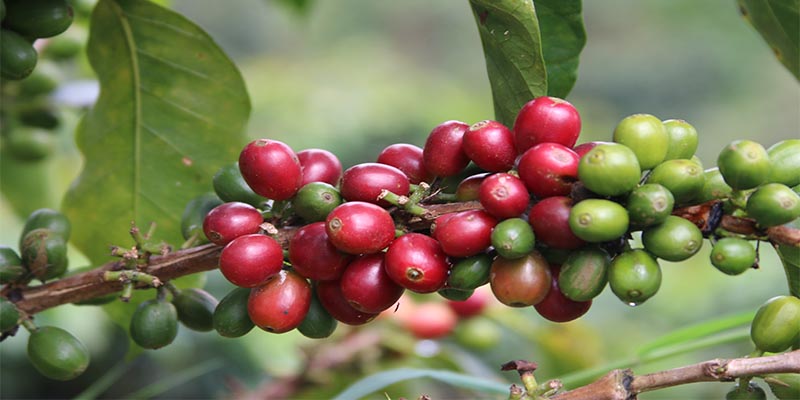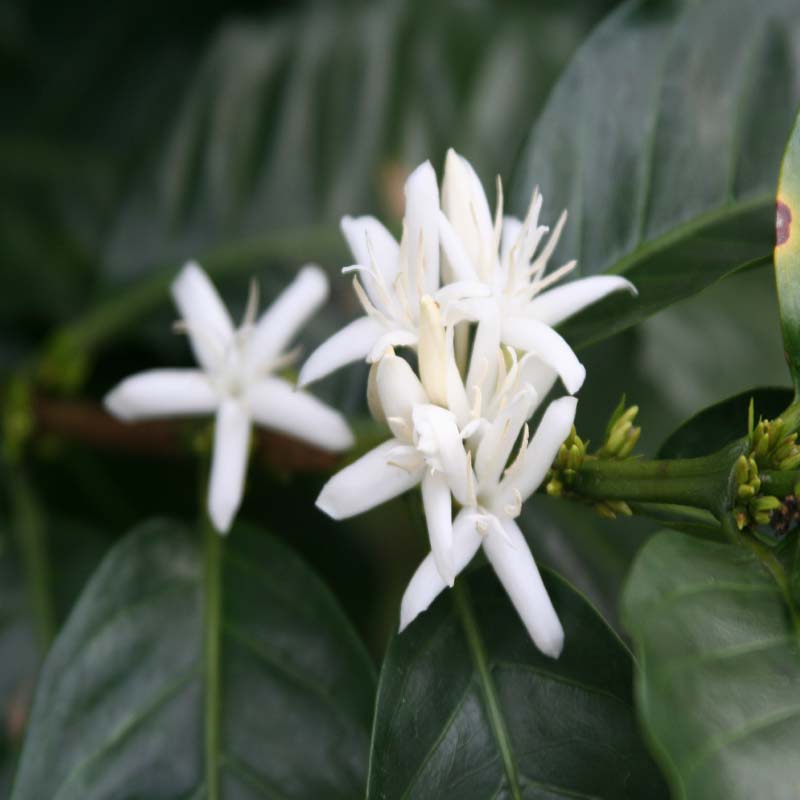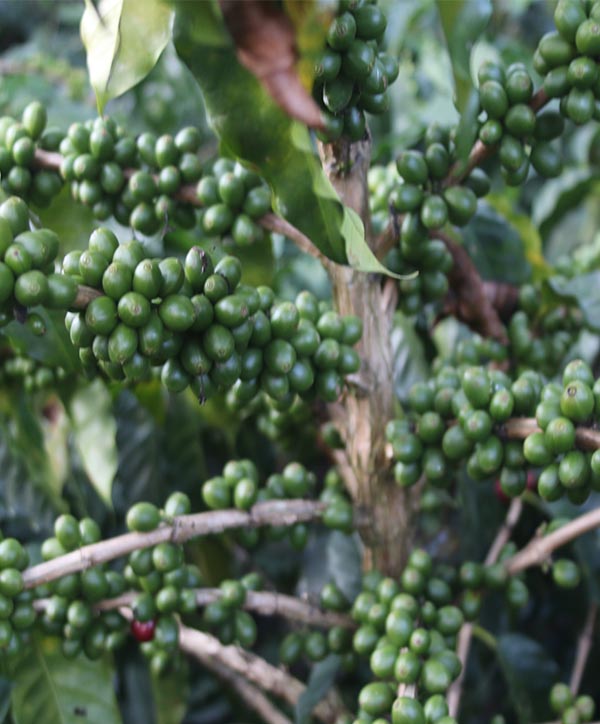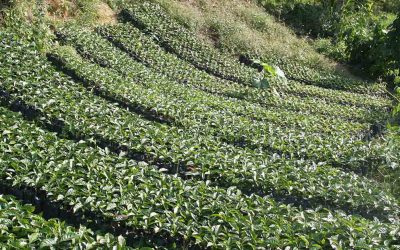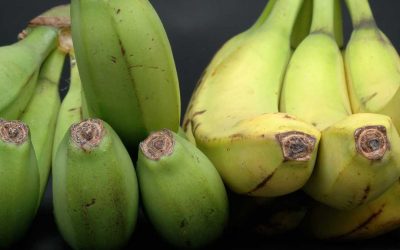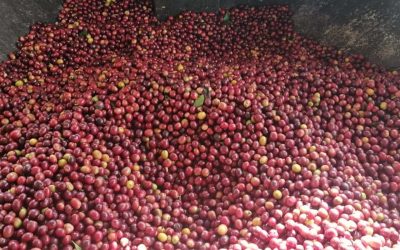Finca Las Cruces
Family Tradition of Sustainable AgricultureFinca Las Cruces
Finca Las Cruces, our family farm, is located just outside the small town of Quinchia. Quinchia sits in the heart of the coffee triangle area of Colombia (zona cafetera), within the department of Risaralda. This department is situated in the central western part of Colombia, around the canyon of the Cauca river, sandwiched between two mountain ranges, the West and Central Cordillera of the Colombian section of the Andes. The rural area of Quinchia is made up of mainly of small-holder farms at an average altitude of 1600 to 1800 metres above sea level, an ideal altitude for growing coffee. The combination of lush volcanic soil with an equatorial mountain climate (hot days and cool nights) provides the ideal conditions to produce coffee of exceptional quality.
Our small farm comprises 10 hectares, of which only 7.5 hectares are used to cultivate coffee and plantain. The remainder of the land is maintained as a natural reserve for water conservation. The farm produces two varieties of Arabica coffee: Castillo and Catimor, from 27,500 planted trees. These produce a coffee that is a smooth and full-bodied with fruity notes and of a medium to mild acidity, leaving a delicate cocoa finish that lingers on the palate. The coffee is hand-picked, peeled, fermented and then washed using the farm’s own spring water before finally it is sun-dried.
About Us
The Cuartas-Alvarez family have farmed this land, passing it from generation to generation, for more than 70 years. I took over the farm in 2005, just before my father passed away. I have a huge affection for this land, the land where I was born and raised.
I grew up in Quinchia then spent time in London, where I ran my own restaurant. My professional experience within the London restaurant scene, where the speciality coffee culture has blossomed, inspired me to modify how we run the family farm. We embraced changes to our working practices so that now all our processes, from cultivation through harvesting, processing to drying are entirely organic and sustainable.
History of the Farm
Both set of our grandparents came from Fredonia, Amaga and La Mina to this area, but it was my grandfather Juan Bautista Alvarez Correa who settled in Quinchia and build up his family and agricultural base there. I’ve been told stories by my mother that as a young lady she would set off from this farm at 2am to travel on horseback to other fields far in the mountains, to go and cook for all the workers that were preparing the land to plant the first coffee fields in those areas
This farm was inherited by my mother, but due the political instability of the late nineties there were a few years when very little attention could be given to it. When our father passed away, it was a crucial moment to decide what to do with the farm – should we sell? However the emotional attachment was strong and we decided to keep the farm and to try to put it into sustainable production
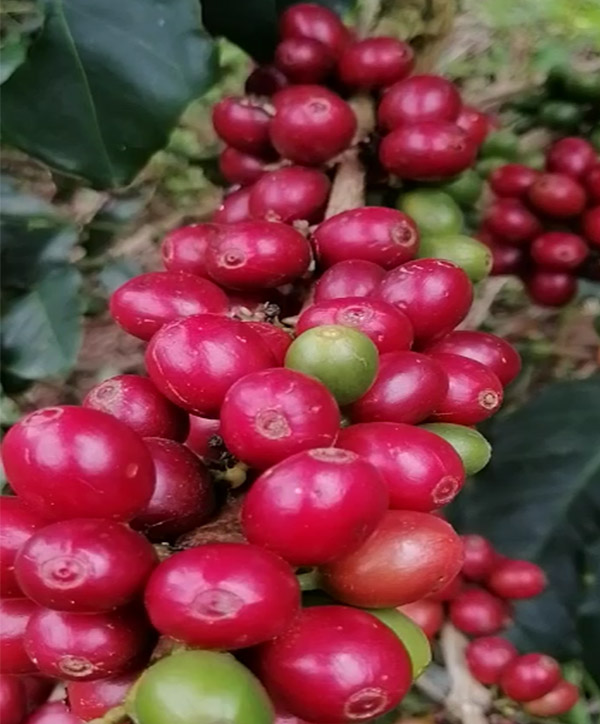
Soil that delivers the best results
We are fortunate that the soil in our farm is rich in organic matter, allowing us to diversify by also producing fruits and vegetables. We believe in diversifying so the farm can supply the resident farmer with fruit and vegetables for his consumption and for sell at the local market.
100% Organic
Our target is to reach 100% organic production, with clean agricultural processes which protect the environment, and to ensure the financial sustainability of the farm in the long term.
Coffee Tree
%
Organic
plots
Latest from the Journal
The Process of Coffee Production
The process of creating coffee, beginning with a seed and arriving in a cup to be consumed by a customer, consists of a typical series of steps to produce the coffee that many enjoy. These steps can be around than thirty that are done in the farm of origen, the last...
Plantains – Platanos
What is plantain? This is one of the most frequent questions I get asked, every time I put a menu down. In my own style I describe it as a starchy banana and get on with the food order. It is about time that I offer a public apology to those lovely customers,...
A short history of our Casa Sabor Café coffee
Coffee, as much as any other food or drink, evokes for many Europeans images of South America. However contrary to popular belief, the coffee tree is not indigenous to the Americas. It came from Africa, via Arabia and Europe in the eighteenth century. Now Colombia,...

